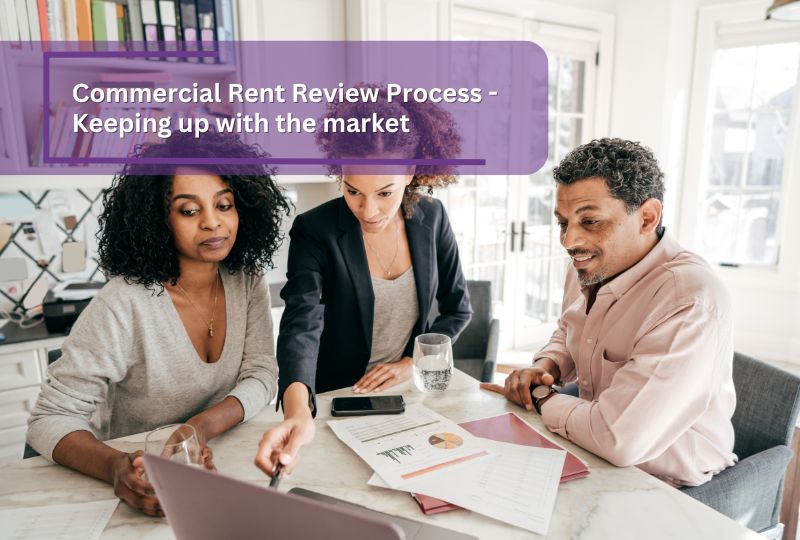If you’re a landlord in Scotland, you know the private rental market here is unique. Whether you’re a seasoned property investor or just starting out with your first buy-to-let, navigating the legal landscape is key to success.
One of the most fundamental requirements is landlord registration. But what exactly is it, and how do you get it? This guide will walk you through what a landlord registration number is, why it’s a legal requirement, and how to successfully complete the registration process.
Let’s dive into the crucial step for protecting your investment and ensuring you’re a compliant, reputable landlord in the Scottish market.
What is a Landlord Registration Number?
In Scotland, a Landlord Registration Number is a unique identifier assigned to a landlord who has successfully registered with their local authority. It serves as a form of licence to let a residential property legally. This number confirms that you have met the necessary legal compliance standards to operate in the Scottish private rental market.
The registration scheme was established by the Antisocial Behaviour etc. (Scotland) Act 2004. The primary objective of this legislation is to ensure all private landlords are considered ‘fit and proper‘ persons to let property. This measure helps to protect tenants and elevate the overall standards of the private rental sector.
Who Needs to Register?
If you are a private landlord letting out a residential property in Scotland, you are legally obligated to register. This applies to almost all scenarios, even if you are letting only a single property.
- Property Owners: If you hold the title to the property and are letting it out, you must register.
- Joint Owners: If the property is owned by multiple individuals, every joint owner must also be registered.
- Landlord Agents: Any individual or company, such as a property manager, who manages the property on behalf of the owner, must also be registered as an agent.
Why is Landlord Registration So Important?
Beyond the legal obligation, securing a valid landlord registration number offers several key advantages:
- Legal Compliance: It ensures you are operating within the framework of Scottish law.
- Tenant Confidence: It provides prospective tenants with the assurance that you are a legitimate and responsible landlord.
- Advertising Requirement: Under Scottish law, you must include your landlord registration number in all property advertisements. If your application is still being processed, you should clearly state “landlord registration pending.”
How to Register as a Landlord in Scotland?
The registration process is managed through the Scottish Landlord Register and is designed to be straightforward.
Step 1: Gather Your Information
Before you begin your application, ensure you have the following key information readily available:
- Your personal and contact details
- Details of any joint owners
- Details of any property agents you use to manage the tenancy
- The address(es) of the rental property or properties
You can get more details on the information you’ll need for registration here.
Step 2: Complete the Application
The most efficient way to register is through the online portal of Scottish Landlord Register.
Apply for Landlord Registration
The digital platform will guide you through the process, allowing you to pay the required fees at the end. You will be prompted to confirm your understanding of your landlord responsibilities.
While a paper application form is available, the online method is generally quicker and is the preferred route for most applicants.
Step 3: Pay the Fees
There are specific fees associated with registration. This includes a principal fee for your first local authority application and a discounted fee for any additional properties or local authorities you register with.
| Application Type | Fees |
| Application with a single local authority | £82 |
| Two or more applications with different local authorities | £41 per local authority |
| Property cost for each property rented out by the landlord | £19 |
| Late application | £164 |
You can get more details on the current fees here.
Step 4: Renewal
Your landlord registration is valid for a period of three years. It is your personal responsibility to ensure you complete the renewal process before your registration expires to maintain legal compliance and avoid penalties.
If you fail to renew your registration before it expires, you’ll be charged a late fee of £164. The late fee also applies to those landlords who have received two requests to register from the local authority, but have not registered yet.
What Are the Penalties You Can Get for Not Registering?
Failing to register as a landlord in Scotland can lead to significant penalties, as it’s a criminal offense. These measures are in place to ensure compliance and maintain standards within the Scottish private rented sector.
Financial and Legal Penalties
Substantial Fines
An unregistered landlord faces a maximum fine of up to £50,000. This substantial financial penalty highlights the seriousness of the offense and serves as a major deterrent.
Rent Penalty Notices (RPNs)
Local authorities have the power to issue Rent Penalty Notices (RPNs). This notice legally prevents you from collecting any rent from your tenants for as long as you remain unregistered. If you receive a valid RPN, the tenant is not liable to pay rent.
Disqualification from Registration
In some cases, the local authority may not only fine you but also disqualify you from being registered for a period of up to five years. This effectively bans you from legally letting out properties during that time.
Other Consequences
Reduced Legal Standing
An unregistered landlord has reduced legal standing in tenancy disputes. A court may view the failure to comply with registration requirements as an indicator of poor management practices, which could weaken your position in legal proceedings.
Damage to Reputation
A conviction for being an unregistered landlord can cause significant reputational damage. This makes it difficult to attract new tenants and can impact your business credibility within the property market.
Who Can Be Exempt from Registration?
You may be exempt from landlord registration if any of the following conditions apply. However, make sure to consult with your local authority to confirm your specific situation and eligibility for an exemption.
- Resident landlords: You don’t need to register if you live in the property and rent out a room or part of your home to a lodger or a family member.
- Family members: You can let to family members, including parents, grandparents, children, nieces, and nephews, without needing to register.
- Holiday lets: Properties let for holiday purposes are exempt from registration, though they may require a short-term let licence.
- Religious orders: Houses managed by religious orders or organizations are exempt.
- Agricultural holdings and crofts: Properties occupied by a tenant farmer under an agricultural or crofting tenancy are exempt.
- Care Services: Properties that provide care services and are regulated by the Care Inspectorate are exempt from registration.
Conclusion
In summary, obtaining a Landlord Registration Number is not just a regulatory hurdle, it’s a critical legal requirement for anyone letting property in Scotland. From facing substantial fines and Rent Penalty Notices to damaging your professional reputation, the risks of non-compliance are simply too high to ignore.
By ensuring you are properly registered with your local authority, you’re not only operating within the law but also demonstrating your commitment to being a responsible, professional landlord. This simple step protects your investment, enhances your credibility, and helps to maintain the high standards of Scotland’s private rental market. If you are not yet registered, or if your registration is due for renewal, take the necessary steps today to secure your standing as a compliant landlord.
Have A Question or Need Some Help?
Whether you're searching for the perfect rental property or a landlord wanting advice on letting, we're here to assist. Feel free to call our office or send us an email, and we'll be happy to help you with any queries you may have.
Frequently Asked Questions
What is the "fit and proper person" test?
When you register, your local council will assess whether you are a "fit and proper" person to be a landlord. They consider factors such as any past criminal convictions, particularly those relating to antisocial behaviour, fraud, or dishonesty.
What happens if I don't register?
It is a criminal offence. You could be fined up to £50,000, and your local council can issue a rent penalty notice, which prevents you from collecting rent while you are unregistered.
What does a landlord registration number look like?
Your Scottish landlord registration number is a unique reference number you receive from your local council after you successfully register. This number is your proof of a valid registration and is often found on your official approval letter. While the format can be slightly different depending on the local council, it usually looks like a series of numbers with slashes, for example, 123456/789/10111.



 Find a Property Sale/Rent
Find a Property Sale/Rent  Letting Agents
Letting Agents  Asset Management
Asset Management 






